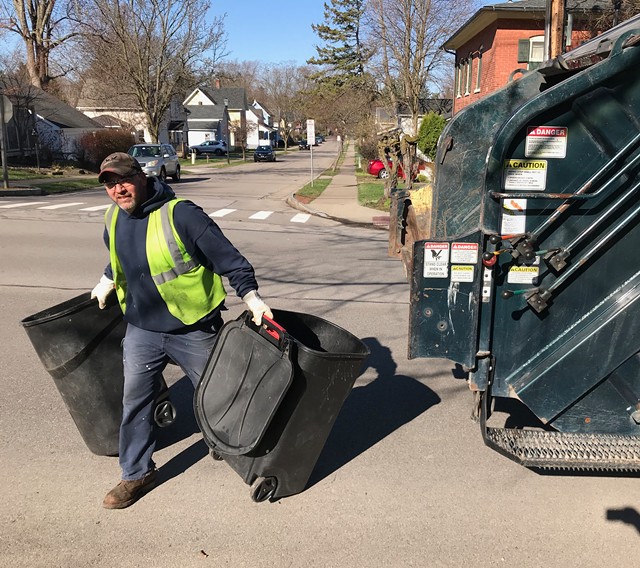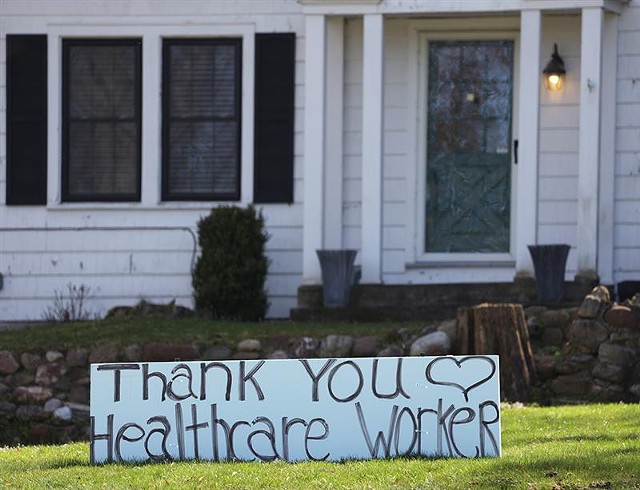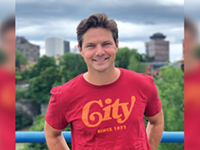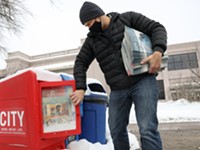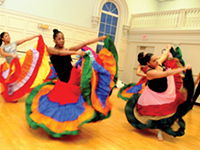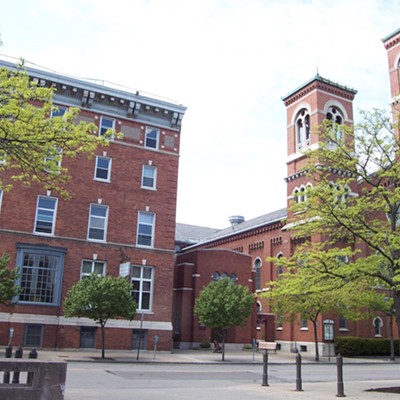[
{
"name": "500x250 Ad",
"insertPoint": "5",
"component": "15667920",
"parentWrapperClass": "",
"requiredCountToDisplay": "1"
}
]
Paul Feeley and his crew at the Department of Public Works in Fairport have a ritual with the half-dozen or so college students they take on every summer.
“We all tell ‘em at the end, ‘When you go back to school make sure you study hard because you don’t want to be doing this the rest of your life,’” Feeley, the department’s superintendent, recalled recently with good humor.
By “doing this” Feeley meant waking up before dawn to pick up trash, forgoing the comfort of a bed in the dead of winter to plow snow, and dropping down into underground tunnels that carry what we flush down the toilet.
Theirs is a dirty job, as the saying goes, but somebody’s got to do it.
Daily life has changed in the three weeks since New York issued stay-at-home orders to all workers but those whose jobs the state deemed “essential.” A Siena College poll on Monday showed 87 percent of New Yorkers said the response to the coronavirus pandemic was having “either a somewhat or very significant impact on their daily life.”
Bellying up to the neighborhood bar at the end up a long week. Not essential. Escaping reality in the dark of a movie theater. Not essential. Losing yourself on the treadmill at the gym. Not essential. Unwinding with a hot dog and peanuts on the sidelines of a ballgame. Foul!
The shutdown has particularly affected hourly service employees who worked those restaurants and movie theaters and fitness clubs and concession stands and who lost their livelihoods overnight.
But noteworthy in the chaos of the moment has been the steadiness of the standard of living to which we have become accustomed in our cities, towns, and villages. That standard has changed remarkably little, if at all, in most places.
Ambulances still scream by. Cop cars and fire trucks, too. The street lights turn from green to yellow to red. The trash gets picked up. Trucks are on the highways delivering food and gas. The phones still work. The mail arrives. Farmers are in the fields. Mechanics are under the hoods. Plumbers are repairing our pipes. Teachers, despite being barred from their classrooms, are still teaching. Nurses and doctors are front line warriors.
These are the essential workers — the people who keep us safe, healthy, fed, and comfortable. Their presence alone has provided a sense of comfort in a discomforting time. They ensure order amid confusion.
They are also generally underappreciated, underpaid, and overlooked. The bear market of the last decade, and the ones before that, passed them by. In the meantime, their pensions were the target of public scorn and whittled down to a skeleton of what was offered to previous generations who got dirty.
Coronavirus has been called an “equalizer,” meaning an illness that doesn’t discriminate between teenagers and senior citizens and celebrities and workaday people.
Although that description has come under some criticism amid mounting evidence that the disease is disproportionately affecting poor communities, as pandemics tend to do, it remains an apropos label insofar as the virus has adjusted the balance of society’s outlook on things.
Jobs that might have been regarded as those “you don’t want to be doing for the rest of your life,” are the ones recognized to be of value when life as we know it gets upended. Those workers are the glue holding our society together.
The white collar workers, the stockbrokers, the lawyers, the lobbyists, the pencil pushers, what value do they offer at a time like this? Not all of them, but many or most.
The same could be asked of the media, which the state has deemed “essential” because of the critical need to dispense reliable information to the masses. It would be hard to argue that diligent reporting on the virus isn’t necessary right now. But what about a column like this?
To some extent, of course, everyone is essential— to an employer, a child, a spouse, a parent, a friend, a stranger, a pet. Collectively, we make the world go round. But there are degrees of indispensability.
The health crisis presents a moment to recognize and reckon, a time to thank the working people who are keeping us from falling apart and for each of us to ask ourselves to what extent we are of use.
“We all tell ‘em at the end, ‘When you go back to school make sure you study hard because you don’t want to be doing this the rest of your life,’” Feeley, the department’s superintendent, recalled recently with good humor.
By “doing this” Feeley meant waking up before dawn to pick up trash, forgoing the comfort of a bed in the dead of winter to plow snow, and dropping down into underground tunnels that carry what we flush down the toilet.
Theirs is a dirty job, as the saying goes, but somebody’s got to do it.
Daily life has changed in the three weeks since New York issued stay-at-home orders to all workers but those whose jobs the state deemed “essential.” A Siena College poll on Monday showed 87 percent of New Yorkers said the response to the coronavirus pandemic was having “either a somewhat or very significant impact on their daily life.”
Bellying up to the neighborhood bar at the end up a long week. Not essential. Escaping reality in the dark of a movie theater. Not essential. Losing yourself on the treadmill at the gym. Not essential. Unwinding with a hot dog and peanuts on the sidelines of a ballgame. Foul!
The shutdown has particularly affected hourly service employees who worked those restaurants and movie theaters and fitness clubs and concession stands and who lost their livelihoods overnight.
But noteworthy in the chaos of the moment has been the steadiness of the standard of living to which we have become accustomed in our cities, towns, and villages. That standard has changed remarkably little, if at all, in most places.
Ambulances still scream by. Cop cars and fire trucks, too. The street lights turn from green to yellow to red. The trash gets picked up. Trucks are on the highways delivering food and gas. The phones still work. The mail arrives. Farmers are in the fields. Mechanics are under the hoods. Plumbers are repairing our pipes. Teachers, despite being barred from their classrooms, are still teaching. Nurses and doctors are front line warriors.
These are the essential workers — the people who keep us safe, healthy, fed, and comfortable. Their presence alone has provided a sense of comfort in a discomforting time. They ensure order amid confusion.
They are also generally underappreciated, underpaid, and overlooked. The bear market of the last decade, and the ones before that, passed them by. In the meantime, their pensions were the target of public scorn and whittled down to a skeleton of what was offered to previous generations who got dirty.
Coronavirus has been called an “equalizer,” meaning an illness that doesn’t discriminate between teenagers and senior citizens and celebrities and workaday people.
Although that description has come under some criticism amid mounting evidence that the disease is disproportionately affecting poor communities, as pandemics tend to do, it remains an apropos label insofar as the virus has adjusted the balance of society’s outlook on things.
Jobs that might have been regarded as those “you don’t want to be doing for the rest of your life,” are the ones recognized to be of value when life as we know it gets upended. Those workers are the glue holding our society together.
The white collar workers, the stockbrokers, the lawyers, the lobbyists, the pencil pushers, what value do they offer at a time like this? Not all of them, but many or most.
The same could be asked of the media, which the state has deemed “essential” because of the critical need to dispense reliable information to the masses. It would be hard to argue that diligent reporting on the virus isn’t necessary right now. But what about a column like this?
To some extent, of course, everyone is essential— to an employer, a child, a spouse, a parent, a friend, a stranger, a pet. Collectively, we make the world go round. But there are degrees of indispensability.
The health crisis presents a moment to recognize and reckon, a time to thank the working people who are keeping us from falling apart and for each of us to ask ourselves to what extent we are of use.
David Andreatta is CITY's editor. He can be reached at [email protected].
Speaking of...
-

Hochul: COVID-19 winter surge is here
Dec 17, 2021 -
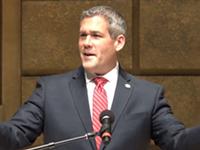
Need to know: vaccine mandates, nursing homes, booster shots
Oct 1, 2021 -

Pfizer vaccine given full FDA approval for ages 16 and older
Aug 24, 2021 - More »

